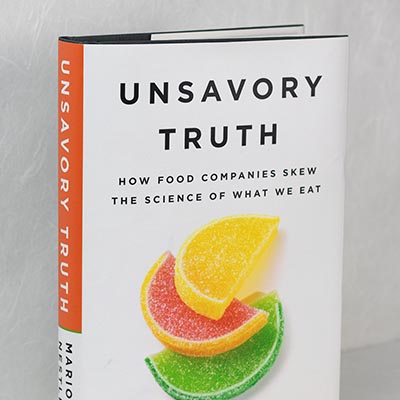Peter's Memo: Follow the money?


Conflict of interest is back in the news. José Baselga, chief medical officer at New York’s esteemed Memorial Sloan Kettering Cancer Center, resigned in September after the New York Times and ProPublica reported that he had failed to disclose in dozens of articles in medical journals that he had received millions in payments from drug and health care companies.
Not long after, other non-disclosing Sloan Kettering researchers were forced into embarrassing journal corrections. Among them: the hospital’s chief executive, Craig Thompson, who also resigned from the corporate boards of two drug companies—Merck and Charles River Laboratories.
Scientists with corporate ties aren’t limited to the drug business, of course. As long as the money is flowing, it’s reasonable to expect similar behavior, regardless of the industry.
Enter Marion Nestle—one of the nation’s most prominent nutritionists, professor emerita at New York University, and a former CSPI board member—with a new book that is as timely as it is revelatory. Unsavory Truth: How Food Companies Skew the Science of What We Eat (Basic Books) may be the most comprehensive survey of corporate influence on nutrition science ever published.

It’s an unappetizing portrait:
■ Nutrition conferences awash in corporate largesse, including sponsored sessions where industry-friendly scientists hold forth.
■ Big Food setting the research agenda for academics and then leaning on them to spin their results in the industry’s favor.
■ Hefty donations to the American Society for Nutrition (mostly academic researchers) from the National Cattlemen’s Beef Association, the National Dairy Council, Coca-Cola, the Sugar Association, and others.
■ Scientists with industry ties on the advisory panel that shapes the government’s Dietary Guidelines for Americans, which is used to set standards for school lunches, home-delivered meals for seniors, and other food programs.
To make matters more complicated, we can’t assume that a study’s conclusions are inherently invalid simply because the research was funded by a self-interested company. One is always left with the task of trying to pinpoint precisely where any bias might have crept in.
Disentangling this self-serving science is hard enough for scientists, as Nestle notes. (See our March 2017 interview with her.)
But what can everyone else do?
That’s where Nutrition Action comes in. To help you interpret a study’s results, we disclose, when possible, any corporate backers of the research. Our goal is to arm you with the information you need to weigh the unrelenting avalanche of new findings on diet and health.
When it comes to the battle against industry misinformation, an informed citizenry is the strongest weapon we’ve got.
Peter G. Lurie, MD, MPH, President,Center for Science in the Public Interest
Photo: Jennifer Urban/CSPI.
Topics

